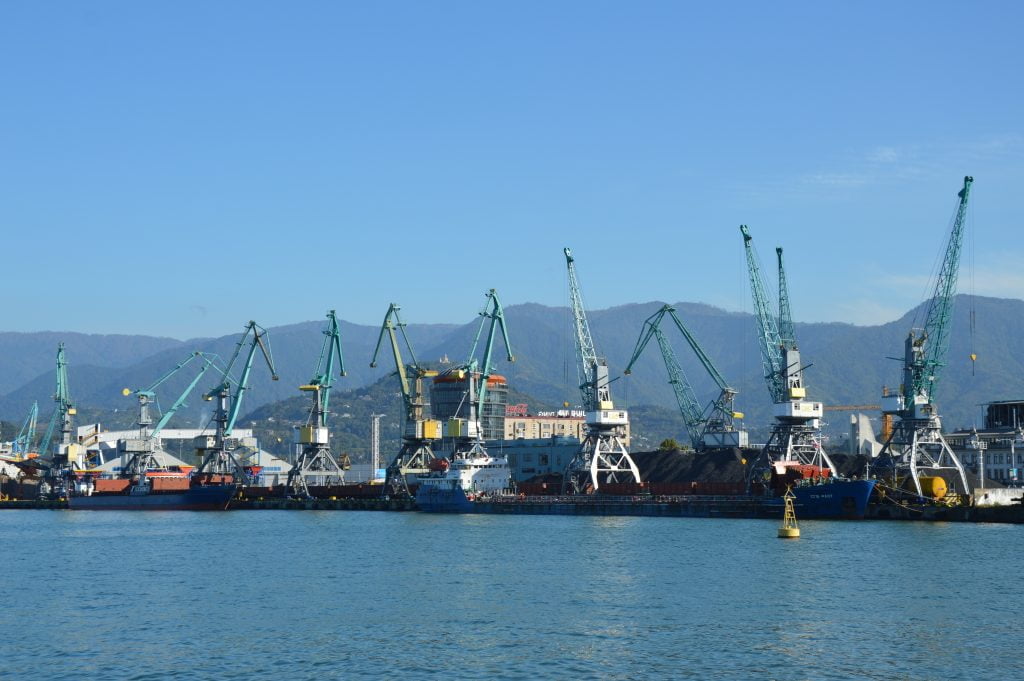The civil society organization Transparency International – Georgia released a study on August 3 revealing that in comparison with previous years Georgia’s economic dependency on Russia is increasing, mainly due to “soaring” remittances from Russia, while the export of goods from Georgia, taken separately, has decreased.
Per the CSO, Georgia received USD 1.2 billion in income in January-June 2022 from Russia through remittances, tourism, and commodity exports, which is 2.5 times more than the income received from Russia in the same period in 2021 from the same sources. Notably, this year’s receipts are 36% more than the income received in January-June 2019, before the COVID-19 pandemic.
Tourism and Remittances
According to the study, in January-June 2022 the growth rate of visitors from Russia “accelerated significantly,” amounting to a total of 247,000. Although, it is still 3 times less than the same period in 2019. The share of Russian visitors in the total number of visits to Georgia for January-June 2022 stood at 15.2%, which is lower than in 2018-2019.
Per TI – Georgia, in April-June of this year, remittances from Russia increased 6.5 times and amounted to USD 678 million. “The main reason for such high growth is the Russian citizens moving to Georgia, who are sending money from Russia,” TI – Georgia stated.
Russian Companies Registered in Georgia
The CSO’s study revealed that a total of 13,500 Russian companies are registered in Georgia, half of which were registered in the country after Russia invaded Ukraine.
“Only in March, April, May, and June of this year, about 6,400 Russian companies were registered in Georgia, which is 7 times more than the annual number of 2021,” the study underscored.
TI – Georgia revealed that 93% of the Russian companies registered as of March 2022 were sole proprietors which points to the fact that a “part of Russian citizens moved to Georgia to live and do business.”
Imports and Foreign Direct Investments
The study denotes that in January-June 2022, imports from Russia increased by 51% amounting to USD 706 million. The Russian share of total imports to Georgia was 11.9% which is the highest in the last 15 years.
Since the start of the war in Ukraine, the import of petroleum products from Russia also increased the most – by 280% (USD 118 million). Electricity imports also increased 4 times (USD 9 million), while the import of coal and coke increased 3 times and totaled USD 23 million.
“Despite the increase in imports, Russian electricity accounts for only 3.5% of Georgia’s domestic consumption,” TI – Georgia underscored. “Russia’s share in the domestic consumption of natural gas in Georgia is up to 8%.”
Per the study, Georgia’s dependence on Russian wheat and wheat flour remain high, with the share of Russian wheat and wheat flour in Georgia’s total imports of these products in January-June 2022 being 95%.
Foreign Direct Investments from Russia in 2022 however, decreased by USD 11.2 million.
Exports to Russia
Meanwhile, the study revealed that Georgian exports to Russia decreased by 2.8% in January-June 2022 and amounted to USD 256 million. Following the start of the Ukraine war, in March-June, export decreased by 16%, mainly due to reduced exports of wine and non-alcoholic beverages.
“Traditionally, Georgia’s wine exports are highly dependent on the Russian market. In January-June 2022, USD 58 million worth of wine exported to Russia was 58% of Georgia’s total wine exports,” TI – Georgia emphasized.
Recommendations
TI – Georgia stressed that the “significantly increased imports of Russian goods, remittances, and establishment of companies by Russian citizens in Georgia raise the risk that Georgia will be used to circumvent sanctions imposed on Russia.”
As a result, the CSO urged the Georgian government to:
- Actively work towards concluding free trade agreements with all strategic partners with who Georgia does not yet have such an agreement;
- Ensure that subsidies from the state budget (grants, concessional credit, etc.) are not given o businesses that increase economic dependency on Russia;
- Develop a strategy to reduce Georgia’s energy dependence on Russia.
Also Read:
This post is also available in: ქართული (Georgian) Русский (Russian)

